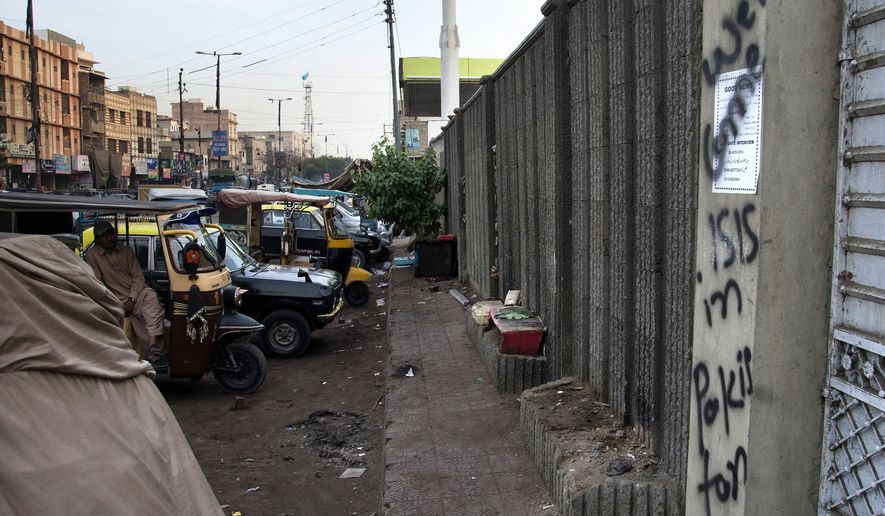Fresh evidence of the Islamic State movements attempts to garner influence beyond the in the Middle East emerged Wednesday when a Pakistani militant group said it had met with visiting emissaries from the terrorist group.
A spokesman from Jundullah, a branch of the Pakistani Taliban — known among intelligence officials as Tehrik-e-Taliban Pakistan — said members of the group had met with Islamic State operatives in Pakistan’s southwestern Baluchistan province.
The spokesman, Fahad Marwat, said the purpose of the visit by representatives of the Islamic State, which is based in Syria and Iraq, was to see how the Mideast-based operation could work to unite various Pakistani militant groups, according to a report Wednesday by the Associated Press.
An influential think tank in Washington this week published findings that said the Islamic State movement’s “meteoric rise” on the global stage is presenting a direct challenge to what intelligence officials describe as the al Qaeda movement’s “original core” in the Pakistan-Afghanistan border region.
The report, posted on the website of the American Enterprise Institue’s “Critical Threats” project, said the Islamic State’s popularity has caused an “exceptional level of flux” among leaders of Pakistani militant groups long aligned with al Qaeda core.
The document said several senior leaders from Tehrik-e-Taliban Pakistan had recently defected and pledged bayat, or allegiance, to Islamic State leader Abu Bakr al-Baghdadi.
SEE ALSO: Al Qaeda frustrated by global popularity of Islamic State: report
The Associated Press report, meanwhile, said Tehrik-e-Taliban Pakistan had fired a spokesman this week for announcing his own allegiance to the Islamic State, which has captured large swaths of territory in Iraq and Syria and declared a self-styled caliphate, or Islamic empire, in the Middle East.
Separately, there was more uncertainty Wednesday over the fate of al-Baghdadi, the Islamic State leader. Questions have swirled since the weekend over whether a U.S. air strike hit the terrorist in Iraq.
U.S. officials have declined to confirm or deny reports during recent days he was critically injured or killed.
• Guy Taylor can be reached at gtaylor@washingtontimes.com.




Please read our comment policy before commenting.